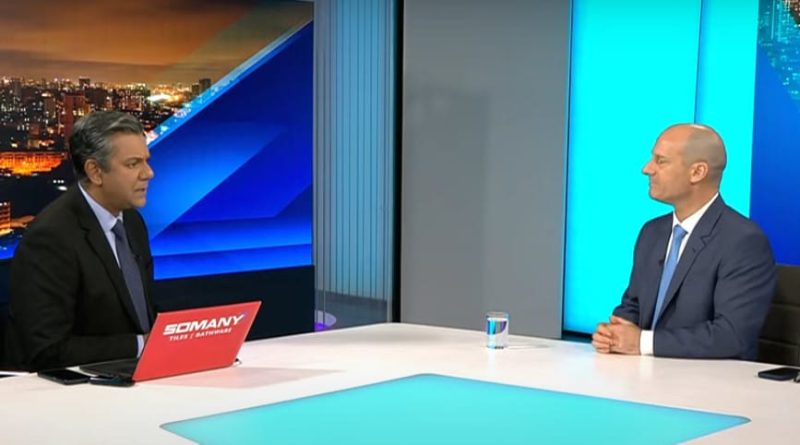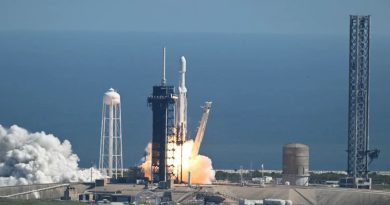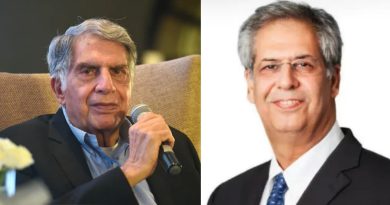Exclusive: What’s Next For Israel After Iran Missile Attack? Envoy Explains
Iran’s attack on Israel wasn’t just a barrage of missiles, it was a barrage of 181 ballistic missiles, each having a warhead payload of between 700-1,000 kilograms, which can destroy entire buildings. This is unprecedented in the history of our warfare, Israel Ambassador to India Reuven Azar said today.
Speaking exclusively to NDTV, the Ambassador described Iran’s sharp escalation against Israel “a very serious situation”, adding that “fortunately we have the best missile defence systems in the world, so most of the missiles were intercepted and no significant damage was done. The only missiles that hit Israel were in open areas that are not usually protected.”
He went on to say that “this is not the first time”, explaining that Israel has nothing against the Iranian people, but instead against “the radical regime in Iran”, which he said has “tried repeatedly to destroy Israel”.
“Iran’s regime has been financing various terror groups for the last 30 years. They take the money from their own people and fail them by funding extremists. Israel will defend itself and not let this regime succeed,” Mr Azar said.
THE DAMAGE AND THE RETALIATION
Quoting the IDF or Israel Defence Forces, the Ambassador said that “Fortunately we have not had any loss of life in Israel and not much damage either. But unfortunately, there was a tragic loss of life of a Palestinian national from Gaza where an Iranian missile hit. Iran’s missile killed a Palestinian.”
Not giving details of a likely counter-attack, Mr Azar said, “We have a challenge here because these kinds of radical people cannot be deterred. We have seen that time and time again. When Hamas launched a terror attack on us or when Nasrallah decided to attack Israel for 11 months, they do not even care for their own people, putting their lives in danger. We have to give a serious blow to these extremists.”
The Ambassador further clarified that Israel is not against the people of Iran, and neither are they in the business of installing regimes in other countries. “Israel only defends itself”, he said, adding that “We put our lives on the line to defend our country, not to change political realities in other countries.”
He however said that “We have seen in the past how Iranian people have revolted against the radical regime. Change will not come from outside, it will come from within, if it does. As for Israel – we are only going to engage to the level of security of our people”
“People of Israel and Iran have shared friendly ties for thousands of years. Iran is not the enemy of Israel. The Persian people have a rich history, an ancient civilisation, which used to have amazing connect with the people of Israel,” Mr Azar said.
“We want a situation where our threat to national security is dealt with effectively, a situation where our people can return to their homes in northern Israel, we want a situation where the UN Security Council resolutions 1701 and 1559 can be effectively implemented. Israel does not want to be an occupying force in Lebanon, neither does Israel want to decide on the political future of Lebanon,” the envoy said.
DISAPPOINTMENT WITH UNITED NATIONS SECRETARY GENERAL
Speaking about the UN chief, the Ambassador said the United Nations are doing very good work, but “unfortunately there are blocs within the United Nations that are biased. It is unfortunate that there is a rigged system in place at the UN, wherein a majority of the countries can manipulate the functioning of the UN such, that you have a Secretary General of the UN who is not condemning this terrible barrage of missiles, it is very very worrisome.”
“The UN should be neutral and unbiased,” the envoy further said.
CAN INDIA PLAY A ROLE IN BRINGING PEACE
When asked if India can play a diplomatic role to bring peace to the region, the Israeli envoy said “That is for India to decide. Diplomacy can always work. We initially tried to resolve issues after the October 7 attack via diplomatic channels, but that didn;t work. Sometimes when there are extremist regimes, in order to defend oneself, one has to deal with it strongly to be effective.”
He went on to say that India is an important player and a friend of Israel’s, and New Delhi will definitely help in building back the Middle East as a “corridor of stability – one that connects Asia and Europe”. India is a partner of Israel, he said.
TIES WITH THE ARAB NATIONS
The Israeli envoy highlighted that in the nearly year-long crisis in West Asia, and Israel’s efforts to safeguard itself, “not a single Arab country has broken ties with Israel,” he said, adding that “In fact, during this year Israel has been building its security cooperation and its intelligence cooperation across the Middle East. What does that show… that when this conflict is over, all these nations which have an interest in building a peaceful and progressive Middle East will work together to achieve that. It shows that there is an alternative to extremism, to fanaticism.”
In his closing remarks, the Ambassador made it clear that “Hamas is no longer a threat to Israel, Hezbollah has faced a serious blow, and Iran will now pay for what it has done.”
Disclaimer: (Only the headline and picture of this report may have been reworked by the KanoonKiBaat staff; the rest of the content is auto-generated from a syndicated feed.)
Source Link





